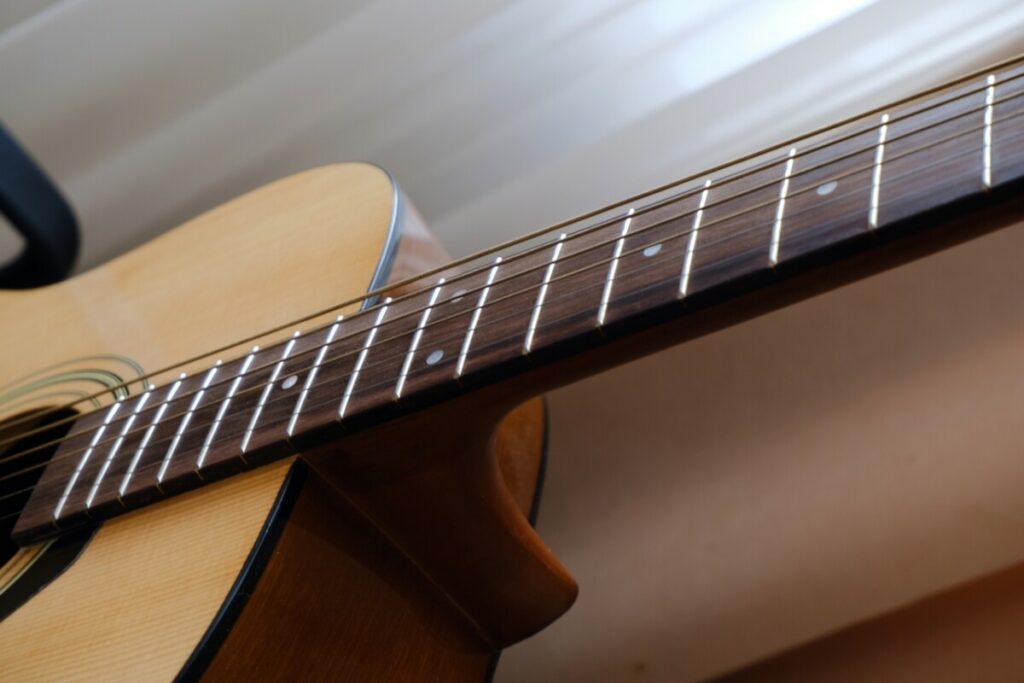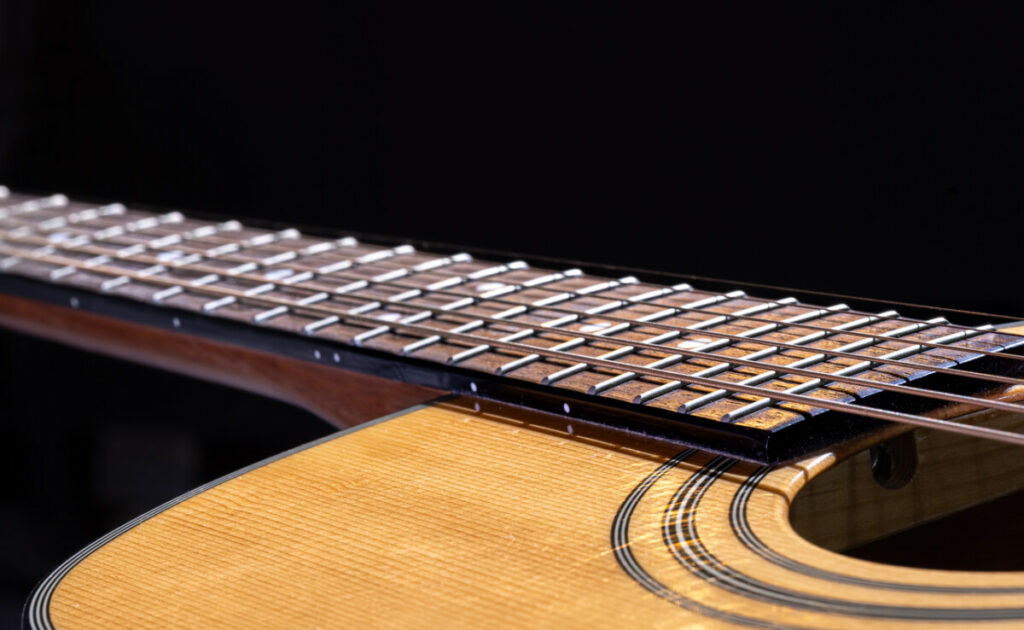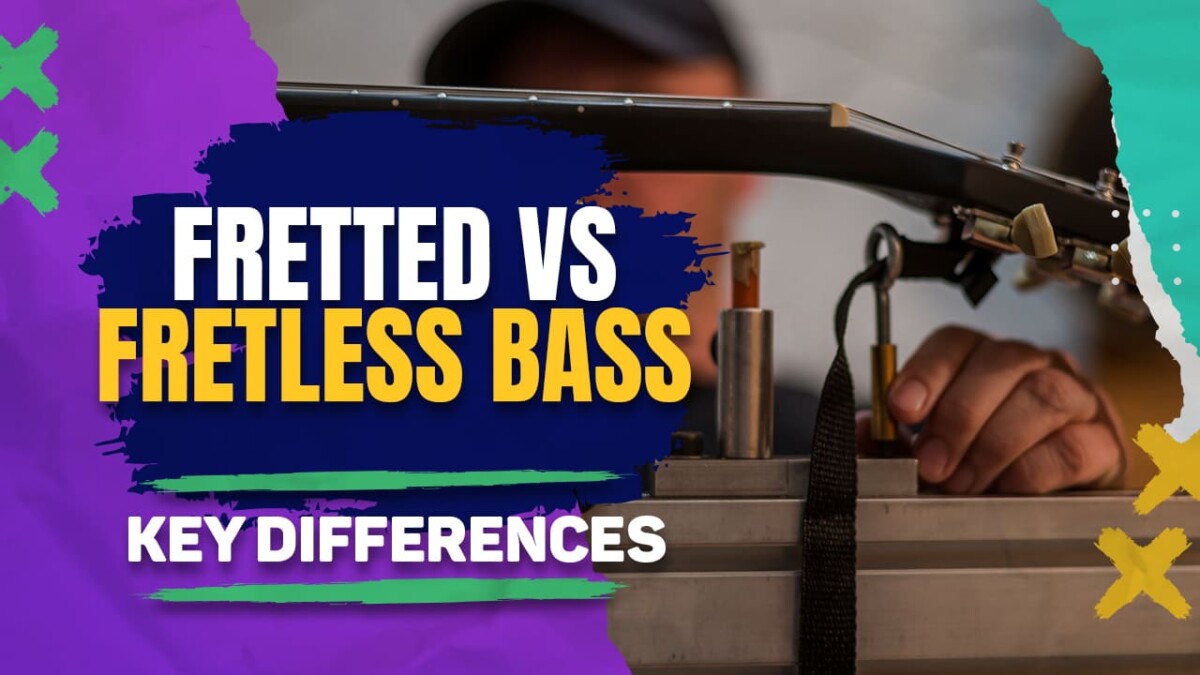Are you a bass enthusiast, totally in love with its deep and rich sound?
Have you spent time pondering on the distinct differences between fretted and fretless bass guitars?
So, whether you’re just beginning your musical journey or already strumming like a pro, understanding the playability, tone qualities, and cost of both fretted and fretless bass guitars can drastically influence your decision.
So let’s dive into the unique characteristics each of these bass guitar types possess to help figure out which one is going to be your perfect partner in crime!
Table of Contents
Overview of Fretted and Fretless Bass

You might know a thing or two about fretted and fretless basses – they’re pretty cool types of bass guitars. Fretted ones have these metal dividers on the neck that makeup segments, while the fretless dudes are all smooth sailing, letting you play around with pitch super easy.
Each type has its own little quirks and perks for playing styles and string choices. On one hand, with a fretted bass in your grip, those metal bars help big time when it comes to fine-tuning intonation. Flip over to the other side though; on a slick fretless instrument, we’re talking finger placement doing all the heavy lifting.
Fretless brings an extra flavor as well – think vibrato and glissando techniques that are way tougher to nail down on their segmented counterparts. Plus it delivers this subtly detailed sound which really vibes well with certain genres like jazz or classical music. However (and there’s always however), if simplicity is more your style then stick it out with a regular old-fashioned model – easier tuning can mean less hassle for beginners just starting out.
At the end of the day though, both bring something unique to the table in making sweet tunes– so choose whichever speaks personally to your musical soul!
Playability Differences

The biggest distinction between a fretted and fretless bass boils down to how easy it is to play them.
A key feature of the fretless bass is its slick, dead-on tuning. This allows musicians to pull off more soulful solos that really stand out.
In contrast, a fretted bass delivers notes with distinct clarity and precision due to the presence of raised metal bars or “frets”. However, not having these markers makes hitting those perfect pitches somewhat tricky.
This can result in unwanted string buzzing which can be an absolute pain for players trying so hard just to get their groove on.
Choosing between the two really comes down to what you fancy; some musos dig the pinpoint accuracy of a good ol’ fashioned fretted beast while others are all about letting loose on something more flexible like our friend – Mr. Fretless Bass.
Ultimately, only one person gets the final say: You! Go ahead and pick up whichever feels right in your hands – let’s make some music!
Tone Differences
With regard to tone, a fretless bass cranks out a more organic, earthy vibe. In contrast, the sound of a fretted bass is sharper and packs more punch.
When we delve into pickups, you’ll find that your typical fretless bass makes use of single-coil pickups with magnetic ones thrown in – this combo results in an understated sound profile. But flip over to the world of fretted basses and things get interesting; they usually boast two or three pickups backed by an active preamp which allows them to dish out bolder and brighter tones.
Let’s talk strings now: the round wound is the string type generally favored by players who opt for a softer-sounding fretless model. On the other hand, if you’re wielding a flatwound-strung-fretted model, prepare yourself for some serious sonic sharpness!
To sum it all up:
- A standard feature on most Fretless models is Single-Coil Pickups
- Fretted Basses sport either Two or Three Pickups
- Roundwound Strings are commonly used on Fretless Models
- Flatwounds reign supreme when it comes to strung-up-Frets
In the end, what really matters is what kind of sound resonates with you as a player because music after all is deeply personal.
Cost Differences

So, you are wondering about the cost of refreting a guitar? Generally speaking, you’ll likely shell out a bit more cash for a fretted bass as compared to its fretless counterpart. This price hike mostly comes from the increased complexity of these models – they usually boast advanced hardware and intricate electronics.
The upkeep costs associated with fretted basses aren’t exactly budget-friendly either. These instruments demand frequent string replacements due to constant wear and tear on their metal dividers, adding up over time.
In terms of strings, let’s just say that the heavier ones are basically in cahoots with your typical fretted bass – they’re specifically manufactured to withstand all that pressure exerted by those pesky little metal bars.
On the flip side, if we take our focus off the high-maintenance world of fretted bases for a moment; enter: The Fretless Bass! These bad boys come equipped with lighter strings which not only make them an absolute breeze to play but also drastically cut down maintenance hassles. So yeah – less hassle means more jamming sessions!
Which Type Is Right for You?
Choosing between a fretted and a fretless bass is not an easy call, but it all boils down to your unique style as a player and what you ultimately prefer. Here are some key points that can help shape your decision:
- Sound Comparison: Fretless basses churn out rounder tones with fewer harmonics – think smooth jazz vibes. On the other hand, if you’re after crisper, more vibrant sounds then go for the fretted ones.
- Technique Challenges: Playing on a fretless base presents its own set of challenges due to the absence of guiding frets. However, this could turn into an excellent opportunity for honing your technical skills.
- Durability: Be mindful that since they’re made entirely from wood; hence more prone to damage –fretless bases tend not to last as long compared to their durable counterparts -the commonly preferred option being the tougher built-fretted bases.
- Cost: Generally speaking, expect higher price tags when looking at purchasing one of those slick-looking yet classy instruments known as “fretless” bases in comparison with traditional “fretted” ones which are usually less expensive.
Reflect on how you envision yourself playing – do you want something challenging or straightforward? Are you seeking warm soothing tones or bright punchy rhythms? Consider these pointers before reaching any conclusions about whether going ‘frett-less’ is indeed right up your alley!
Frequently Asked Questions
What Is the Difference Between a Fretted and a Fretless Bass?
Ever take note of how some bass guitars have frets, while others don’t? When it comes to choosing between them, your soloing skills and affinity for different fretboard feels are key. With their defined notes, fretted basses make playing melodies almost effortless. On the other hand, if you’re after that smooth expressive vibe with every strum; then the road less traveled – aka the ‘fretless’ is your go-to!
Is a Fretless Bass More Difficult to Play Than a Fretted Bass?
The very thought of handling a fretless bass might seem intimidating at first glance. But trust me! Once you’ve mastered its unique technique requirements and string tension balance, it’ll be as easy as pie! So now when someone asks whether playing on a fret-less model is tougher than its counterpart- well…the ball’s in your court!
Is There a Noticeable Difference in Sound Quality Between a Fretted and a Fretless Bass?
100%! The way they’re played along with diverse string options can lead to contrasting sounds when we compare our two contenders – making this one more reason why picking between these choices isn’t an open-and-shut case.
Are Fretless Basses More Expensive Than Fretted Basses?
Well – remember what they say about quality coming at cost right? Typically speaking, those sleek-sounding beauties called ‘fret-less’ tend to burn bigger holes in pockets due to factors like fingerboard construction and setup expenses involved. So gear up mentally (and monetarily) before taking that plunge.
Are There Any Other Factors to Consider When Deciding Between a Fretted and a Fretless Bass?
Absolutely! When weighing your options, don’t forget to factor in things like string types and finger technique. The fret-less option lets you experiment with unique sounds but demands a different playing style altogether. Whereas going for the ‘fretted’ might be less taxing on the learning curve, remember – your sound range could get boxed in by those strings and frets.
Conclusion
Deciding between a fretted or fretless bass? Let’s break it down: look at playability, sound profile, and expense.
Both have unique aspects that could be just your jam. So think carefully about what you want from your instrument.
For the classic vibes, a fretted bass is a killer. But if you’re after something different with buttery smooth tones – consider going for a fretless one.
Remember though – the ball’s in your court! Give both types of basses a spin and see which one gets your groove going like nothing else.

